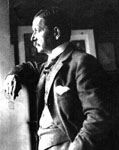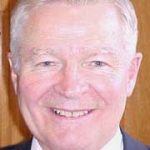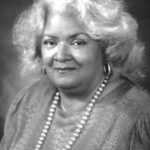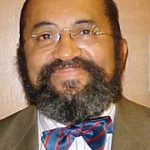James Freeman Clarke
Trustee of the Library, 1879-1888. Born 1810 in Hanover, NH, and died 1888 in Jamaica Plain/Boston. Clergyman, social reformer, scholar and author. James Freeman Clarke’s family lived for a time in the home of his grandfather, the Rev. James Freeman of Boston’s King’s Chapel, who tutored him daily and allow him the use of his considerable library. He went on to receive his formal education at Boston Latin School and at Harvard University. The rote style of education at the time in these schools kindled his lifelong work for educational reform. Inspired by his grandfather and by Samuel Taylor Coleridge, Mr. Clarke entered Harvard Divinity School, graduating and ordained a Unitarian minister in 1833. His preaching experiences in Louisville, KY—then a rural river town—led him to study other faiths and to develop his ability to communicate with peoples of differing religious thoughts. With his friend the Reverend Ephraim Peabody, Rev. Clarke founded the Unitarian magazine, The Western Messenger, of which he later became the sole editor. On returning to the Boston area in 1841, he set about gathering a church that would become the Church of the Disciples, a Unitarian congregation drawn from all parts of the city rather than from one specific geographic area as was common in New England. Rev. Clarke wrote articles and poems for his church’s weekly newsletter, The Christian World; gathered and published its orders of services and hymns; and participated in many social movements for temperance, woman’s suffrage, prison and educational reforms and against slavery. By 1849 he was exhausted from overwork and grieving the death of his firstborn son. During his time away from Boston, he studied non-Christian or “ethnic” religions and lectured on them. After returning to pastorate life and his social and reform activities, Rev. Clarke purchased Brook Farm in an attempt to bring back communal life but later offered its use to the Union Army as a training ground. During the Civil War he visited and preached at the army camps as well as raised funds for supporting the wounded; the church sent teachers and supplies to help freed slaves. After the war, Dr. Clarke was appointed to the Harvard Divinity faculty and influenced the School to offer courses on non-Christian religions and to emphasize requirements on modern, rather than ancient, languages and literature. Drawing on his studies and researches, he gave lectures on comparative religions at the Lowell Institute which were later published in three volumes. Although active and in good health, Rev. Clarke experienced increasing fatigue starting in early 1887; he preached for the last time in the spring of 1888 and soon died peacefully, surrounded by family. In honor of his religious and social influences and efforts in Boston and New England, donations were made to the Library in his memory: a portrait of Rev. Clarke by Edwin T. Billings given by William H. Reed and others now hangs in the Fine Arts Department reading area, and the statue of Sir Henry Vane by Frederick MacMonnies given by Dr. Charles G. Weld and others now stands in the vestibule of the McKim Building.
Sources:
McGonigle, Gregory. “James Freeman Clarke” Dictionary of Unitarian and Universalist Biography (electronic database) at < http://www.uua.org/uuhs/duub/articles/jamesfreemanclarke.html>
Wadlin, Horace G. The Public Library of the City of Boston: A History. Boston: Trustees of the Boston Public Library, 1911.
Whitehill, Walter Muir. Boston Public Library: A Centennial History. Cambridge, MA: Harvard University Press, 1956.
Illustration:
“James Freeman Clarke”, engraving by J.A.J. Wilcox, early 1900’s, Print Dept.
William Henry Whitmore
Trustee of the Boston Public Library, 1885-1888. Born 1836 in Dorchester; died 1900 in Boston. Merchant, politician, genealogist, antiquarian. A descendant of Francis Whitmore who settled in Cambridge, MA, in 1648, William H. Whitmore attended both Boston Latin and English High Schools before entering his family’s firm of commission merchants. While traveling to such places as India and Madagascar during his 25 years as a merchant, he studied law and painting. Elected to the Boston Common Council in 1874, Mr. Whitmore spent much of his energy promoting the preservation and publication of local records and concurrently served on the Boston Board of Record Commissioners. He became a city registrar in 1892 and supervised the publication of local and vital records in several multiple volume sets. Throughout his activities in Boston, Mr. Whitmore frequently contributed writings to the New England Historic Genealogical Society Register, the Nation, and the Massachusetts Historical Society, as well as published genealogies and histories of New England towns and families. While he supported the need to find expanded quarters for the growing public library, Trustee Whitmore disagreed on constructing a new building and eventually resigned his trusteeship because of its cost.
Sources:
“William Henry Whitmore (1836-1900)”, Dictionary of American Biography Base Set. American Council of Learned Societies, 1928-1936. Reproduced in Biography Resource Center. [Online database] Farmington Hills, MI: The Gale Group, 2003 at http://www.galenet.com/servlet/BioRC via BPL Electronic Resources web page.
Wadlin, Horace G. The Public Library of the City of Boston: A History. Boston: Trustees of the Boston Public Library, 1911.
Whitehill, Walter Muir. Boston Public Library: A Centennial History. Cambridge, MA: Harvard University Press, 1956.
Frederick Octavius Prince

Trustee of the Boston Public Library, 1888-1899. President of the Board of Trustees, 1895-1899. Lawyer and politician. Born 1818 and died 1899 in Boston. Frederick Prince, a graduate of Boston Latin School and of Harvard University, was admitted to the Boston bar in 1840. He was a representative of the town of Winchester and later served as Massachusetts Senator from the Democratic Party. He served a single term as Mayor of Boston in 1877 and was re-elected to serve from 1879 to 1881. It was during his 1879 inaugural speech when Frederick Prince advocated the building of a new edifice to accommodate the growing library. He was later appointed to the board to oversee the construction of the new building on Copley Square. Under his leadership, the Board supervised the execution of McKim’s plans with “good taste and artistic judgment, and sufficient backbone to fearlessly exercise them.” A bust of Prince by John Francis Paramino given by Gordon C. Prince in 1965 now stands in the Cushman Room.
Sources:
Professional and Industrial History of Suffolk County, Massachusetts. Boston: Boston History Company, 1894.
Wadlin, Horace G. The Public Library of the City of Boston: A History. Boston: Trustees of the Boston Public Library, 1911.
Whitehill, Walter Muir. Boston Public Library: A Centennial History. Cambridge, MA: Harvard University Press, 1956.
Illustration:
"Frederick O. Prince", engraving, n.d., Print Dept.
Francis Amasa Walker
Trustee of the Boston Public Library, 1896. Born 1840 and died 1897 in Boston. Soldier, teacher, administrator, statistician and author. Francis Amasa Walker graduated from Amherst College and entered the law firm of Devens & Hoar, but enlisted with the 15th Massachusetts Regiment of Volunteers upon reaching his majority. He rose to the rank of Adjutant General of the 2nd Corps, fighting in a number of Civil War battles. His capture and confinement in Libby prison broke his health and forced his retirement from service with the brevet title of Brigadier General. Following his military service, Mr. Walker taught for a time at Williston Seminary and was the assistant editor at the Springfield (MA) Republican newspaper. In time, he would write several books about the military company and leaders he served with. During his first year in office, President Grant appointed Mr. Walker to head the U.S. Bureau of Statistics in Washington, DC, where Mr. Walker’s administrative abilities later led to appointments as Superintendent of the 1870 and 1880 Federal Censuses and as Indian Commissioner. He was an economics professor at Yale University and later taught at Johns Hopkins and Harvard Universities. His presidency at the Massachusetts Institute of Technology steered the school to distinction among contemporary learning institutions. He wrote numerous articles and books on American economics, and pioneered the use of statistical numbers to illustrate economic theories. Within this field, Mr. Walker served as the president of the American Statistics Association and later as the first president of the American Economic Association. His death from apoplexy ended his Library trusteeship after only one year of service.
Sources:
“Gen. Francis Amasa Walker, 1840-1897”, History of Economic Thought Website hosted by the Economics New School, at http://cepa.newschool.edu/het/profiles/walker.htm.
Hayward, Rev. Silvanus. “Gen. Francis A. Walker, LL.D.”, The Register of the New England Historic Genealogical Society, vol. 52, January 1898, pp. 69-72.
Wadlin, Horace G. The Public Library of the City of Boston: A History. Boston: Trustees of the Boston Public Library, 1911.
Whitehill, Walter Muir. Boston Public Library: A Centennial History. Cambridge, MA: Harvard University Press, 1956.
Solomon Lincoln

Trustee of the Library, 1887-1907. President of the Board of Trustees, 1899-1907. Lawyer. Born 1838 in Hingham, MA, and died 1907. A graduate of Harvard University in 1857 and of Harvard Law School in 1864, Solomon Lincoln continued his law studies in the office of Stephen B. Ives of Salem and was admitted to the Essex county bar in the same year of his graduation. He had a long and successful legal practice after establishing himself in Boston. His title of “Colonel” came from a position he held on the staff of Governor Thomas Talbot’s administration in 1879. Solomon Lincoln succeeded Frederick Prince as President of the Board and served in that capacity until his death.
Sources:
Professional and Industrial History of Suffolk County, Massachusetts. Boston: Boston History Company, 1894.
Wadlin, Horace G. The Public Library of the City of Boston: A History. Boston: Trustees of the Boston Public Library, 1911.
Whitehill, Walter Muir. Boston Public Library: A Centennial History. Cambridge, MA: Harvard University Press, 1956.
Illustration:
"Solomon Lincoln", photograph by A. W. Elson & Co., appearing in The Public Library of the City of Boston: A History, between pages 184 and 185.
William Alexander Gaston

Trustee of the Boston Public Library, 1923-1927. Born 1859 in Roxbury and died 1927 in Barre, MA. Lawyer, banker and Democrat. The son of the Honorable William Gaston, former Boston Mayor and former Governor of Massachusetts, William Alexander Gaston graduated from Harvard in 1880 and was a classmate of Theodore Roosevelt and Josiah Quincy. He studied law at Harvard Law School and his father’s firm, and later organized his own Boston firm of Gaston, Snow and Saltonstall from which he practiced corporation law and the management of estates. His success as a corporate lawyer led to his selection as coordinator for the consolidation of the city’s various street railway companies into the Boston Elevated Railway Company. In the banking industry, Mr. Gaston was a leading and influential participant in overseeing several financial institutions as well as organizing the National Shawmut Bank of Boston, of which he was president for a number of years before becoming chairman of its board of directors. Following World War I, he was appointed by the U.S. Government as an arbitrator of labor disputes in Hartford, CT, and Bath, ME. Colonel Gaston was a prominent Massachusetts Democrat, serving on the staff of Governor William Eustis Russell where he attained his title, and ran unsuccessful for the Massachusetts Governorship. Outside his public life, he maintained a famous herd of cows on his Barre farm where he researched problems related to raising livestock and standardizing food production. In addition to his Library trusteeship, he was a member of the Overseers of Harvard University, of the Massachusetts Horticultural Society and of Trinity Church. Colonel Gaston supported many other organizations and causes associated with education and charity with both his time and money.
Sources:
“Memoirs: Col. William Alexander Gaston”, The Register of the New England Historic Genealogical Society, vol. 82, October 1928, pp. 482-484..
Wadlin, Horace G. The Public Library of the City of Boston: A History. Boston: Trustees of the Boston Public Library, 1911.
Whitehill, Walter Muir. Boston Public Library: A Centennial History. Cambridge, MA: Harvard University Press, 1956.
Illustration: "Col. William A. Gaston", photograph by United Photo Service, Boston Herald-Traveler Photo Collection, Print Dept.
William M. Bulger

William M. Bulger is the twenty-fourth president of the University of Massachusetts. He assumed office on January 4, 1996. In his inauguration speech, President Bulger said the University recognizes that "it is for life - not merely for a living - that we must prepare our students."
Under President Bulger's leadership, the five-campus University has seen dramatic increases in private support, alumni activity, research funding, and the academic scores of incoming freshmen. President Bulger has also launched an award-winning television advertising campaign featuring prominent alumni, and a scholarship program that rewards students who finish at the top of their high school graduating class.
President Bulger's appointment by the University of Massachusetts Board of Trustees followed his 35-year career as a leading state lawmaker. From 1978 to 1996, he served as President of the Massachusetts Senate, elected every two years by his colleagues. His tenure as President was the longest in state history.
He was first elected to the Senate in 1970 representing the First Suffolk District. Prior to serving in the Senate, he served in the House of Representatives from 1961 to 1970. Throughout his legislative career, Mr. Bulger played a pivotal leadership role in issues that shaped the physical, cultural and social landscapes of Massachusetts.
During the 1960s, he led efforts to write the first child abuse reporting laws in this state and during the following three decades continued to focus much of his attention on the plight of children. He was one of the architects of a groundbreaking education reform law that reduced the funding inequities between rich and poor communities. He was among the first advocates of charter schools and public school choice. During the 1980s, he made funding of public libraries a top priority and also advocated for the expansion of childhood nutrition services and fuel assistance programs.
Under Mr. Bulger's leadership, Boston Common and the Public Garden were beautified and protected. He secured funding to keep both parks well lit at night, and he led the fight for a law prohibiting the building of any skyscraper that would cast a shadow upon either. He also won funding to beautify Castle Island in South Boston and preserve the 19th-century fort there, while also securing funds to help clean up the Boston Harbor.
President Bulger led the Senate through its debate on welfare reform in the early 1990s, often reminding lawmakers that "after we have eaten, we forget there is such a thing as hunger." The resulting legislation, less punitive than some hoped, became the model for a national law.
Mr. Bulger is a past president of the Boston Public Library Board of Trustees and continues to serve on the board. He is also a member of the Boston Symphony Orchestra Board of Overseers, Massachusetts General Hospital Board of Trustees and the National Grid USA Advisory Board.
He is a former member of the Museum of Fine Arts Board of Trustees and the McLean Hospital Board of Trustees, overseer of the Children's Museum in Boston, Citizens Bank of Massachusetts Board of Directors and corporator of the Winsor School in Boston.
Upon is graduation from Boston College High School in 1952, President Bulger enrolled at Boston College. His undergraduate career was interrupted when he joined the United States Army in 1953. He returned to Boston College in 1955 and completed his undergraduate degree in English in 1958. He then entered Boston College Law School, from which he received his Doctor of Jurisprudence degree in 1961.
Known for his independence of mind, regardless of the political consequences, President Bulger has been singled out for special recognition by one of the Commonwealth's most prestigious institutions. In bestowing its 50th Anniversary Award upon President Bulger, Boston College Law School described him as one "whose career reflects great honor on the Law School."
President Bulger is the recipient of more than 20 honorary degrees from institutions of higher learning.
Mr. Bulger is the author of the best selling political memoir, "While the Music Lasts, My Life in Politics."
He was born on February 2, 1934, the son of James and Jane (McCarthy) Bulger.
In 1960, he married Mary Foley. He continues to make his home in South Boston where he and his wife of 41 years have raised their nine children: William, James, Sara, Patrick, Mary, Daniel, Kathleen, Christopher and Brendan.
There are now 19 grandchildren: Bridget Bulger, Monica Bulger, Michael Hurley, Deirdre Hurley, Mary Hurley, Charles Webb, Ian Webb, Alannah Bulger, Christopher Bulger, James Hurley, Patrick Bulger, Thomas Bulger, William Webb, Grace Bulger, Elizabeth Hurley, Mary Catherine Bulger, Brendan Webb, Margaret Bulger and Jean Marie Bulger.
Berthé M. Gaines

Appointed to the position in 1984 and reappointed in 1990, Berthé M. Gaines is the first African-American woman to serve as a trustee of the Boston Public Library and only the fourth woman to serve in the history of the Library, which was established in 1848. Her appointment followed a time of fiscal crisis for the city (1981-1984) when she was actively involved in SAVE OUR LIBRARIES, a citywide multi-racial, multi-ethnic, multi-cultural group of men and women committed to keeping neighborhood libraries open. In 1990, Mrs. Gaines served as the first female president of the Board of Trustees and in 1999, Mrs. Gaines received an Honorary Doctorate from Simmons College, Boston, MA.
William O. Taylor

William O. Taylor is Chairman Emeritus of the Globe Newspaper Company, which publishes The Boston Globe.
A 1954 graduate of Harvard University with a B.A., Mr. Taylor was also educated at The Dexter School in Brookline, Massachusetts and St. Paul’s School in Concord, New Hampshire. He has received honorary degrees from Northeastern University (Doctor of Journalism); University of Massachusetts Dartmouth (Doctor of Humane Letters); and Bentley College (Doctor of Humane Letters), and University of Massachusetts (Boston).
In community activities, Mr. Taylor was a Trustee and former Chairman of the Board of the Boston Public Library; Trustee of the Boston Public Library Foundation; Director of Harvard Magazine; Director of International Center for Journalists; Vice Chairman of the Federal Reserve Bank of Boston; Trustee of the International Crisis Group and Chairman Emeritus of The Freedom Trail Foundation.
V. Paul Deare

Trustee of the Boston Public Library, 1995-2003. Mr. V. Paul Deare serves as Director of Economic Development for the Neighborhood Development Corporation of Jamaica Plain.
